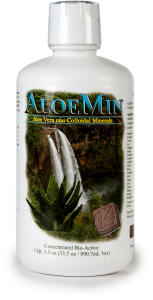Minerals are important for your body to stay healthy. Your body uses minerals for many different jobs, including building bones, making hormones and regulating your heartbeat. Although minerals make up only a small fraction of total body weight, they are essential for human metabolism. Minerals act as the catalysts for many biochemical reactions within the human body. They are involved in responses of the nervous system and muscles, the absorption and secretions of the body’s fluids, and maintain a delicate water balance within the body. The bones and teeth of our body have high mineral contents which accounts for their hardness and rigidity. Minerals, like vitamins, must also be supplied by dietary means as we are unable to synthesize them in our body.
Major minerals are considered major because they are required by the body in doses of 100 mg/day or greater. Calcium and phosphorous are the greatest in amounts in the body. Minor minerals are required by the body in amounts of less than 100 mg/day, and are also called trace minerals or trace elements. Minerals, made of metals and other inorganic compounds, are as essential to bodily functions as vitamins. They form the structure of our bodies and help our systems work. Major minerals are: calcium, phosphorus, potassium, sodium, chloride, magnesium, and sulfur. Minor minerals are: chromium, cobalt, flouride, zinc, selenium, silicon, boron, iron, copper, iodine, manganese, molybdenum, nickel, arsenic and vanadium. Sodium, potassium, chloride are necessary electrolytes: A mineral salt that can conduct electricity when dissolved in water.
 The best way to get the nutrients your body needs is by eating a wide variety of foods.
The best way to get the nutrients your body needs is by eating a wide variety of foods.
It is not always easy to consume all the important nutrients throughout the day. AloeMin™ is a special blend of the high quality Aloe Vera juice plus over 70 plant derived minerals and rare trace minerals that are naturally occurring in various amounts.
Have you ever wondered what minerals your body needs, or what they even do?Here is a list of essential minerals and trace minerals that you need, how they work for your body, and the sources you can get them from.
- CALCIUM (major mineral) – Calcium is the most common and abundant mineral in the body and is found primarily in the bones and teeth. A small but absolutely essential amount of calcium is found in the blood and soft tissue. As a result of homeostasis, the body will take calcium from the bones if there is not enough circulating in the blood and extracellular fluid. The skeleton is constantly being absorbed and remodeled. Osteoporosis results from many factors some of which are inadequate calcium intake or absorption along with accompanying adequate vitamin D levels, hereditary factors, lack of bone stressors (exercise) throughout one’s life, and hormone function. Vitamin D is required for maximum calcium absorption.
- Sources – Milk and milk products; canned fish with bones (salmon, sardines); fortified tofu and fortified soy milk; greens (broccoli, mustard greens); legumes
- IRON (trace mineral) – Iron is essential for metabolism, DNA synthesis, growth, healing, immune function, reproduction, as a cofactor in many enzyme reactions, preventing anemia, and is found in hemoglobin and myoglobin, proteins which transport oxygen through the blood and muscles (important for athletic performance). Hemoglobin acquires and transports oxygen from the lungs and releases it as blood courses through the tissues. Myoglobin also functions in transport and storage of oxygen in the working muscles.
- Sources – Organ meats; red meats; fish; poultry; shellfish (especially clams); egg yolks; legumes; dried fruits; dark, leafy greens; iron-enriched breads and cereals; and fortified cereals
- MAGNESIUM (major mineral) – Most magnesium found in the human body is found in the skeleton, the next highest accounting is in the muscle tissues and the rest is found in other tissues and fluids. Magnesium is essential for energy production, protein formation and cellular replication. It is as important as, if not more important than calcium and phosophorus. Magnesium works with calcium in muscle contraction and relaxation (calcium-contraction, magnesium-relaxation). It also works with vitamin D, potassium and other minerals. It is employed in at least 300 enzymatic reactions within the body, many relating to energy. It helps reduce blood pressure, reduce vascular spasm and improve heart function and also helps regulate calcium metabolism.
- Sources – Nuts and seeds; legumes; leafy, green vegetables; seafood; chocolate; artichokes; “hard” drinking water
- POTASSIUM (major mineral) – Potassium is also known as an electrolyte. As an electrolyte it regulates membrane potential, using positively charged ions and interacts with sodium (positively charged) and chloride (negatively charged) for membrane potential. Sodium is located outside the cell, potassium inside the cell. Chloride keeps sodium and potassium balanced. The sodium-potassium pump is found within cell membranes and keeps the cell in balance. The pump also maintains the electrical charge of the cell which is critical for nerve and muscle function and contraction.Potassium needs to be replenished after hard exercise and profuse sweating. Low potassium results in low levels of stored glycogen or muscle fuel. Potassium deficiency results in fatigue and muscle weakness. Eating fresh fruits and vegetable juices replenishes potassium most healthily and inexpensively. Too much sodium or too much potassium upsets the balance (fluid balance) which is critical to optimal performance. Most people eat far too much sodium which is found in processed foods, fast foods, and condiments
- Sources – Meats, milk, fresh fruits and vegetables, whole grains, legumes
- ZINC (trace mineral) – Zinc functions in cell/energy metabolism for growth and development, in cell signaling systems, in the immune system, in neurological development, and in reproduction. It is found in all body tissues and is particularly important in enzyme function (over 200) and hormone function, and in vision, taste, smell, and in wound-healing. Its highest concentration is in muscles (65%), in red and white blood cells, bone, skin, liver, kidneys, pancreas, eye retina, in the male prostate gland and sperm; it helps make cell membranes strong. Zinc absorption is decreased by drinking tea or coffee or eating vegetables or whole grains with phytic acid (found in fiber) with meals. Zinc joins the phytic acid and forms zinc-phytate which is not absorbed. High intakes of calcium, iron and copper may also limit zinc absorption. Cysteine and methionine (amino acids) improve zinc absorption as does yeast found in leavened bread.
- Sources – Meats, fish, poultry, leavened whole grains, vegetables
- SODIUM (major mineral) – Needed for proper fluid balance, nerve transmission, and muscle contraction
- Sources – Table salt, soy sauce; large amounts in processed foods; small amounts in milk, breads, vegetables, and unprocessed meats
- CHLORIDE (major mineral) – Needed for proper fluid balance, stomach acid
- Sources – Table salt, soy sauce; large amounts in processed foods; small amounts in milk, meats, breads, and vegetables
- PHOSPHORUS (major mineral) – Important for healthy bones and teeth; found in every cell; part of the system that maintains acid-base balance
- Sources – Meat, fish, poultry, eggs, milk
- SULFUR (major mineral) – Found in protein molecules
- Sources – Occurs in foods as part of protein: meats, poultry, fish, eggs, milk, legumes, nuts
- IODINE (minor mineral) – Found in thyroid hormone, which helps regulate growth, development, and metabolism
- Sources – Seafood, foods grown in iodine-rich soil, iodized salt, bread, dairy products
- SELENIUM (minor mineral) – Antioxidant
- Sources – Meat, seafood, grains
- COPPER (minor mineral) – Part of many enzymes; needed for iron metabolism
- Sources – Legumes, nuts and seeds, whole grains, organ meats, drinking water
- MANGANESE (minor mineral) – Part of many enzymes
- Sources – Widespread in foods, especially plant foods
- FLOURIDE (minor mineral) – Involved in formation of bones and teeth; helps prevent tooth decay
- Sources – Drinking water (either fluoridated or naturally containing fluoride), fish, and most teas
- CHRONIUM (minor mineral) – Works closely with insulin to regulate blood sugar (glucose) levels
- Sources – Unrefined foods, especially liver, brewer’s yeast, whole grains, nuts, cheeses
- MOLYBDENUM (minor mineral) – Part of some enzymes
- Sources – Legumes; breads and grains; leafy greens; leafy, green vegetables; milk; liver


Hey very nice blog!
Your post is valuable , thanks for the info http://myhealthandwellness.pen.io
1. Are these minerals contained in a the Aloe Vera Juice?
2. Or, are the minerals sold as a separate product?
Thanks!
I would like to know how to make an order on this website for at least essential minerals. How can I do this? I only find how to order aloe. Pease advise. Thanks. Marilyn
I would like to thank you for the efforts you have put in writing this site. I really hope to check out the same high-grade content by you in the future as well. In truth, your creative writing abilities has motivated me to get my own, personal site now 😉
Hello there! This article could not be written any better! Going through this article reminds me of my previous roommate! He always kept talking about this. I’ll send this article to him. Fairly certain he’s going to have a very good read. Many thanks for sharing!